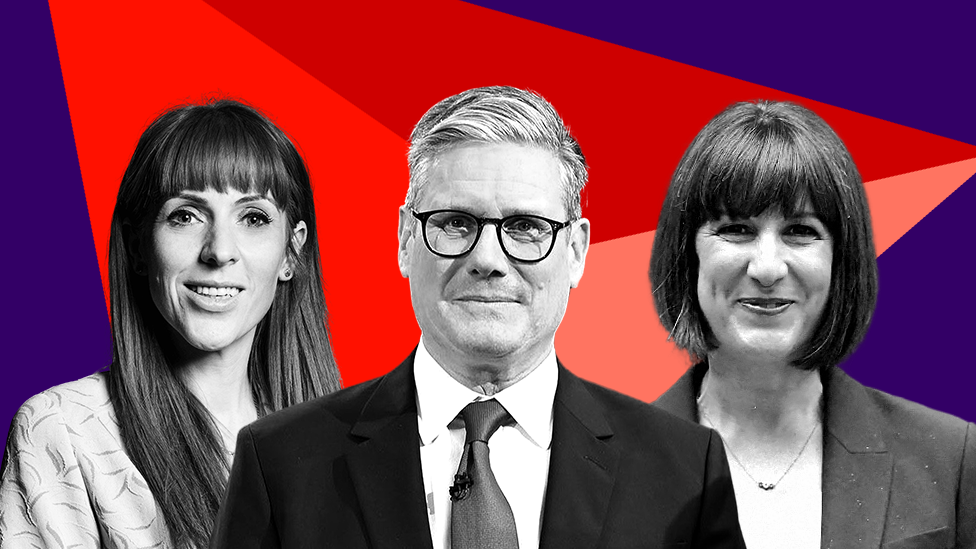Taoiseach congratulates Sir Keir Starmer
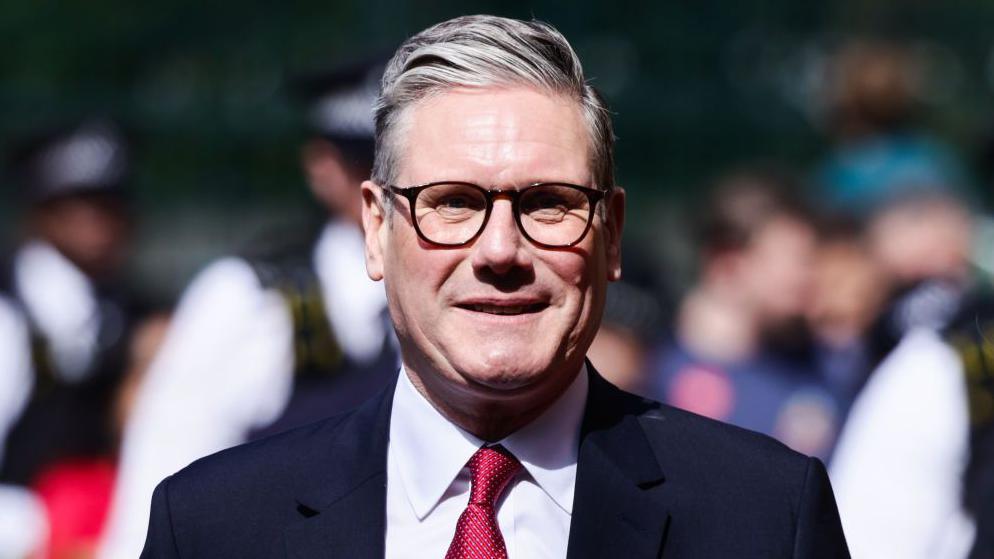
The phone call followed a landslide victory for Sir Keir Starmer's Labour Party
- Published
Taoiseach Simon Harris has spoken to the new UK Prime Minister Keir Starmer by phone.
The Taoiseach told his Fine Gael party in a private meeting on Wednesday that he was making plans to seek an early engagement with the new British government.
During the call on Friday, Mr Harris congratulated Sir Keir on his new role and his party's victory in the election.
The taoiseach said "he looked forward to having a close and constructive working relationship".
"We both agreed on the call that it is so important that we now have a reset moment in Anglo-Irish relations and that both he and I would lead on that," Mr Harris said.
"I think the relationship between the taoiseach and the British prime minister is so key in terms of Anglo-Irish relations.
"I am determined now to throw myself into that with vigour and energy."
Mr Harris accepted the prime minister's invitation to visit Downing Street on 17 July.
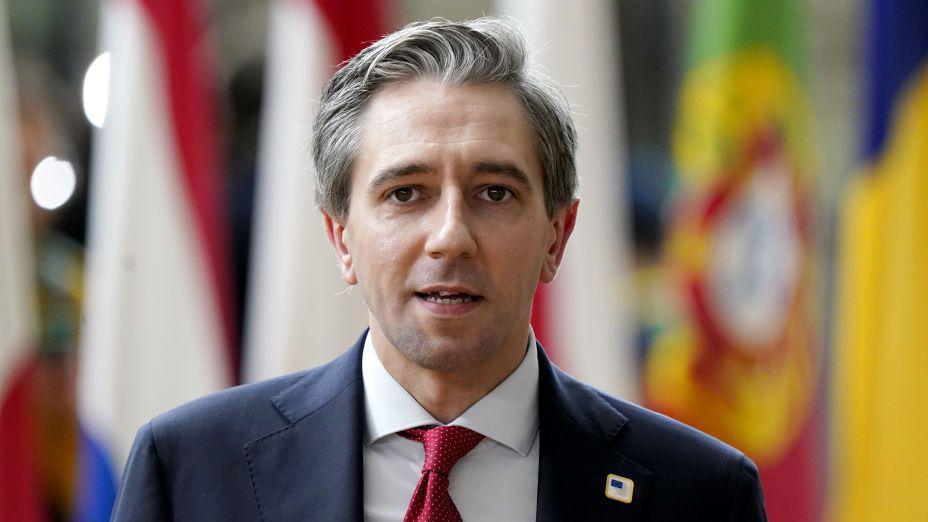
Simon Harris was elected taoiseach in April 2024
'Closer relationship between Dublin and London'
The taoiseach and the prime minister spoke of their determination to "reset and strengthen" the bilateral relationship between Ireland and the United Kingdom.
They also discussed Northern Ireland - welcoming the restoration of the Institutions.
They also discussed legacy issues.
The taoiseach also welcomed the appointment of Hilary Benn as secretary of state for Northern Ireland.
Simon Harris and Sir Keir Starmer both agreed "a closer relationship between Dublin and London was needed" and regular engagement between them would be required.
They have agreed to start work on that immediately and to stay in close contact.
'Early engagement'
After years of strained relations, Simon Harris said the election provided an “opportunity and major moment” to reset relations with the Republic of Ireland's nearest neighbour.
Speaking before the UK general election, Mr Harris said he did not want to foreshadow who would be successful but was keen to hit the ground running.
He said this was in order to forge stronger relationships between the administrations on both sides of the Irish Sea.
The taoiseach told TDs (MPs) and senators it was timely to seek “early engagement to discuss close, good relationships, between Ireland and the UK, in a post-Brexit environment".
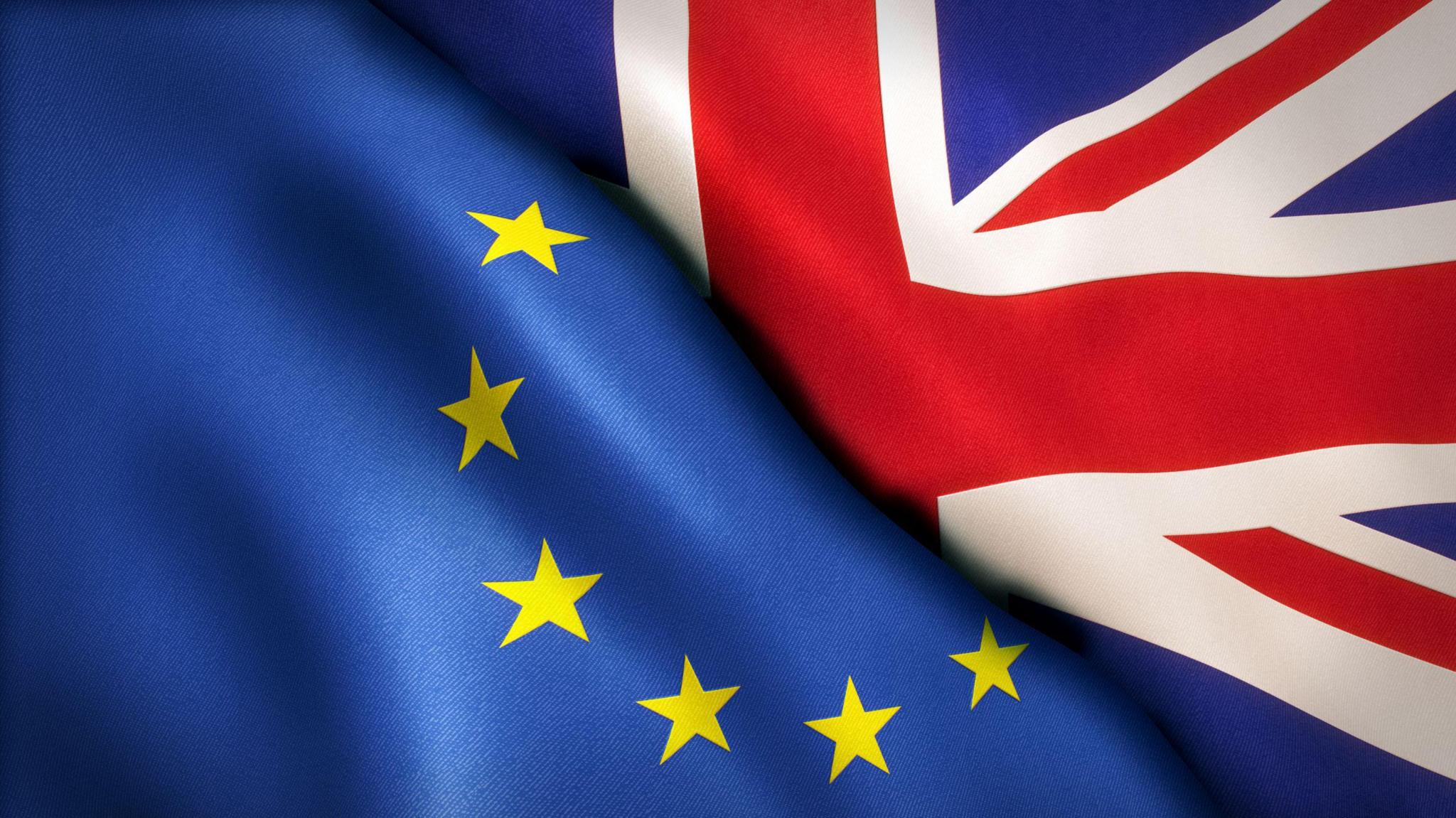
The relationship between Dublin and London was strained at times during Brexit negotiations
Why have relations been strained at times?
There has previously been tension at times between London and Dublin in recent years.
The British government's Legacy Act was opposed not only by the Northern Ireland political parties but also repeatedly by the Irish government.
Its introduction on 1 May meant an an end to historical inquests and the transferring of Troubles-era cases to a new body.
The act's most controversial element, the offer of conditional immunity to suspects, has been disapplied following legal action by bereaved families.
The court ruled this part of the act was incompatible with human rights' legislation and the Windsor Framework.
Brexit negotiations also caused some tension on the relationship between London and Dublin.
And, there have been tensions over asylum seekers.
Earlier this year, the Irish government complained of a significant spike in the number of asylum seekers arriving in Ireland from Northern Ireland.
The Irish government argued the UK had a duty to take them back.
But, the then prime minister, Rishi Sunak, ruled that out.
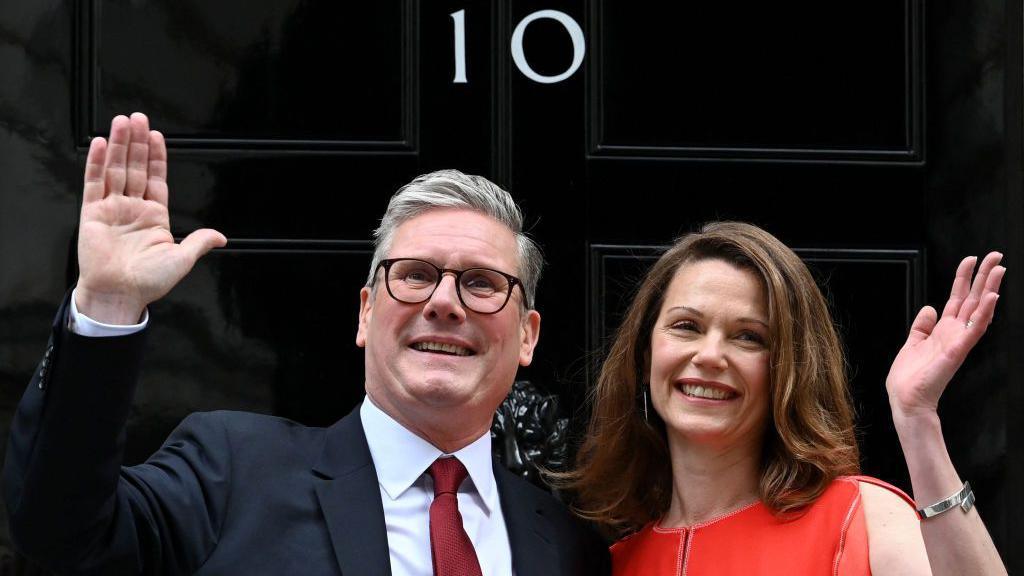
Sir Keir Starmer and his wife Victoria wave outside their new home in Downing Street
Sir Keir Starmer is the first Labour leader to oust a sitting Conservative government since Tony Blair’s landslide victory in 1997.
The new prime minister has promised change on a manifesto to "rebuild Britain" after 14 years of Conservative rule.
Mr Starmer trained as a barrister, specialising in human rights cases, and was director of public prosecutions from 2008-13 before becoming an MP.
He frequently describes himself as being from a "working class background".
His dad was a toolmaker and his mum worked as a nurse.
Simon Harris is also relatively new to his role having become taoiseach earlier this year.
He took over the role after Leo Varadkar announced he was stepping down in March 2024.
Mr Harris was elected after a vote in which 88 Dáil (Irish parliament) members supported him while 69 voted against his appointment.
- Published6 July 2024
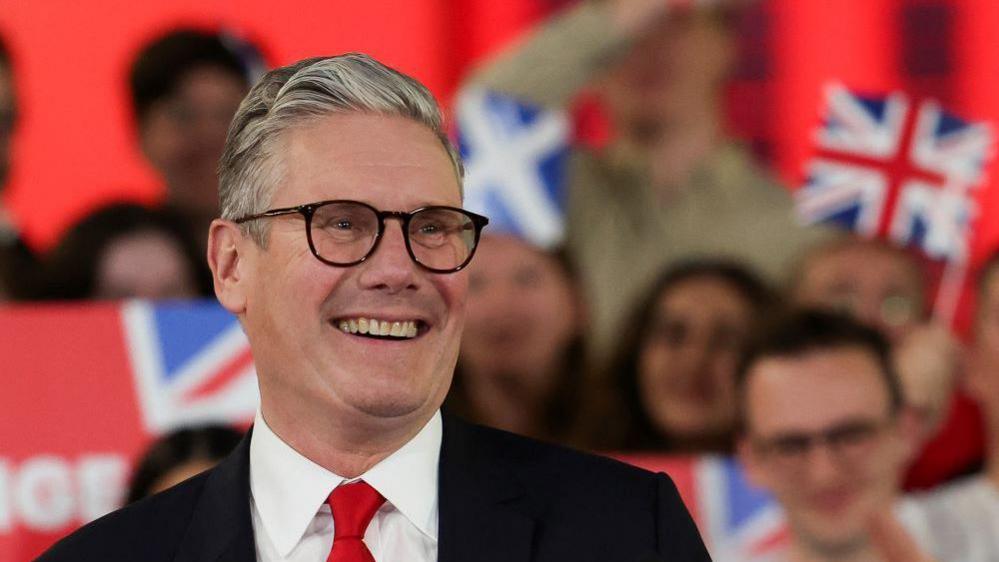
- Published5 July 2024
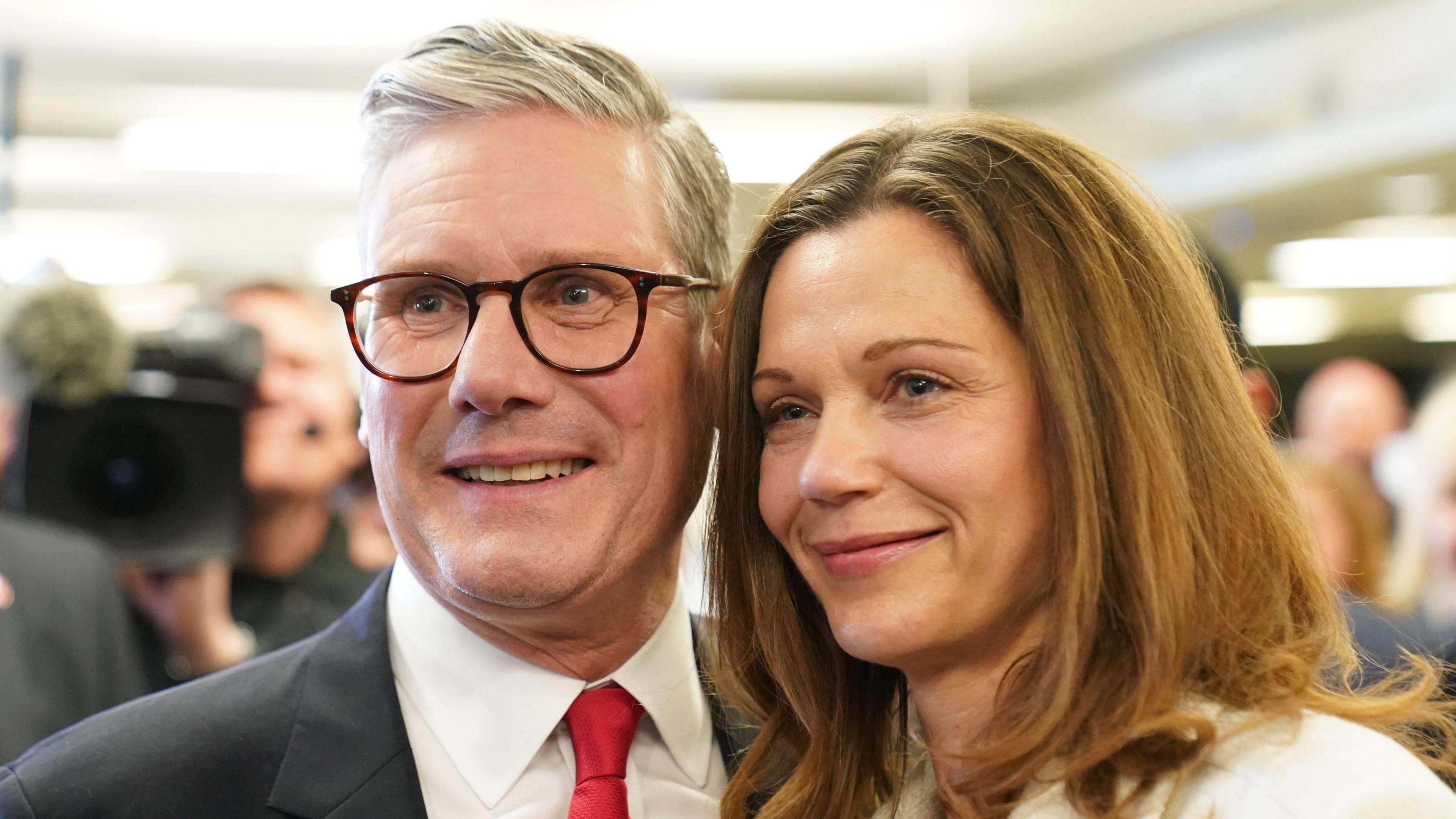
- Published16 September
